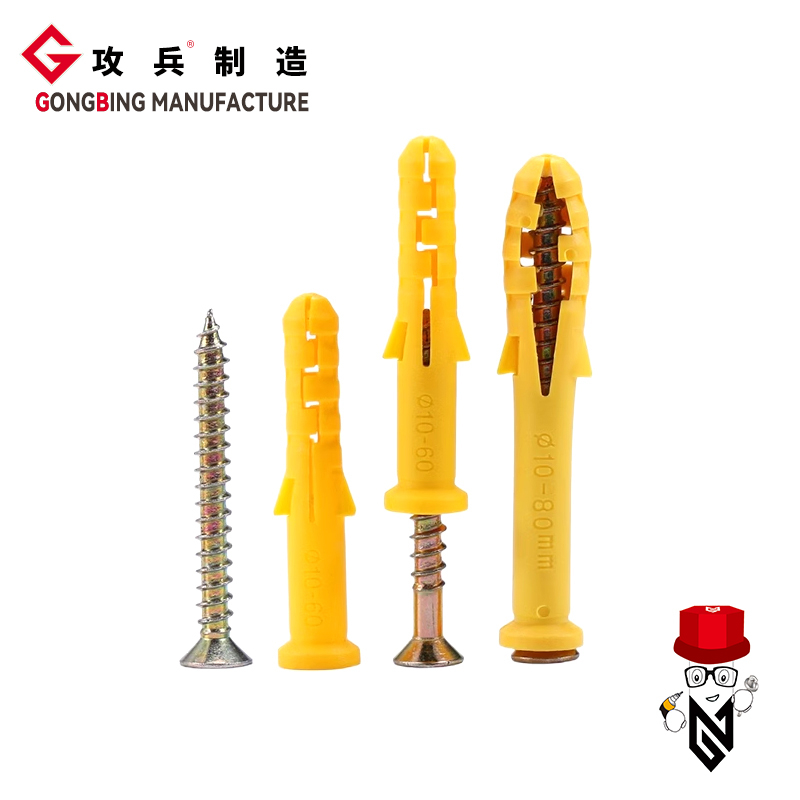wafer self tapping screws
The Importance of Wafer Self-Tapping Screws in Modern Manufacturing
In the fast-paced world of modern manufacturing, the need for efficient, reliable, and versatile fastening solutions has never been more critical. Among the array of fastening options available, wafer self-tapping screws have gained significant popularity due to their unique design and functionality. These screws play an essential role in various applications, particularly in the electronics and automotive industries.
What Are Wafer Self-Tapping Screws?
Wafer self-tapping screws are fasteners characterized by their flat, wide heads and sharp, threaded shafts that can create their own mating threads in the material they are driven into. This feature eliminates the need for pre-drilled holes, making them a time-saving choice in assembly processes. The unique design of the wafer head provides a larger bearing surface, which helps distribute the load evenly and prevents pull-through in softer materials.
Advantages of Wafer Self-Tapping Screws
1. Easy Installation One of the primary benefits of wafer self-tapping screws is their ease of installation. The self-tapping feature allows these screws to be used on a variety of materials, including plastics, thin metals, and wood, without requiring additional tools or pre-drilling. This significantly reduces labor time and costs, streamlining the manufacturing process.
2. Versatility Wafer screws are incredibly versatile and can be used across different applications. They are commonly found in electronics, such as securing circuit boards or attaching components, as well as in the automotive sector for interior and exterior fittings. This adaptability makes them a go-to choice for engineers and designers alike.
wafer self tapping screws

3. Enhanced Holding Power The threaded shaft of a wafer self-tapping screw provides excellent holding power, crucial for maintaining structural integrity in applications that may experience vibration or movement. When properly installed, these screws create a tight bond that can withstand various forces, contributing to the durability of the end product.
4. Corrosion Resistance Many wafer self-tapping screws are available in materials or coatings designed to resist corrosion, such as stainless steel or zinc-plated finishes. This is particularly important in applications exposed to moisture or harsh environments, ensuring longevity and reliability.
5. Cost-Effectiveness Given their ease of use and reduced assembly time, wafer self-tapping screws offer a cost-effective fastening solution. The combination of low material costs and minimal labor requirements makes them an economical choice for manufacturers.
Applications in the Industry
Wafer self-tapping screws are vital in numerous industries, most notably in the production of electronic devices, automotive assembly, and construction. In electronics, they secure various components without damaging delicate parts. In automotive manufacturing, they are used to fasten interior panels, secure electrical components, and contribute to overall vehicle assembly. Additionally, their use in construction is seen in fastening sheet metal, insulation materials, and other structural elements.
Conclusion
As manufacturing technologies continue to evolve, the demand for efficient and reliable fastening solutions like wafer self-tapping screws will only increase. Their unique combination of features, including easy installation, versatility, enhanced holding power, and cost-effectiveness, makes them an invaluable part of modern manufacturing processes. As industries adapt to technological advancements, wafer self-tapping screws will remain at the forefront of fastening innovations, ensuring quality and efficiency in production lines.
-
Weatherproof Plastic Expansion Anchors for OutdoorNewsJun.06,2025
-
Sustainability in the Supply Chain: Eco-Friendly TEK Screws ProductionNewsJun.06,2025
-
Load-Bearing Capacity of External Insulation FixingsNewsJun.06,2025
-
Double Head Bolts: Enhancing Efficiency in Industrial MachineryNewsJun.06,2025
-
Corrosion Resistance in Chipboard Screws: Coatings for Wholesale DurabilityNewsJun.06,2025
-
Butterfly Toggle Bolts : Enhancing Structural ResilienceNewsJun.06,2025
